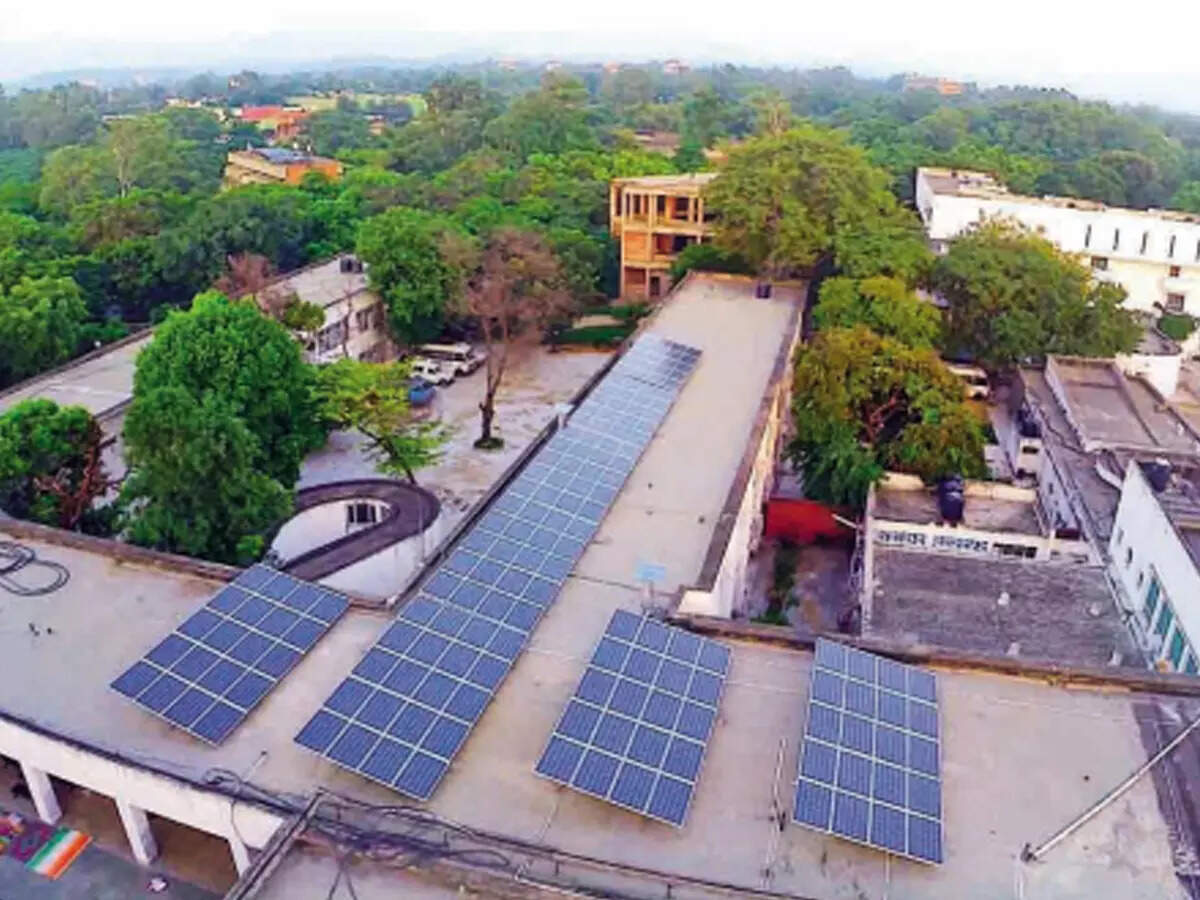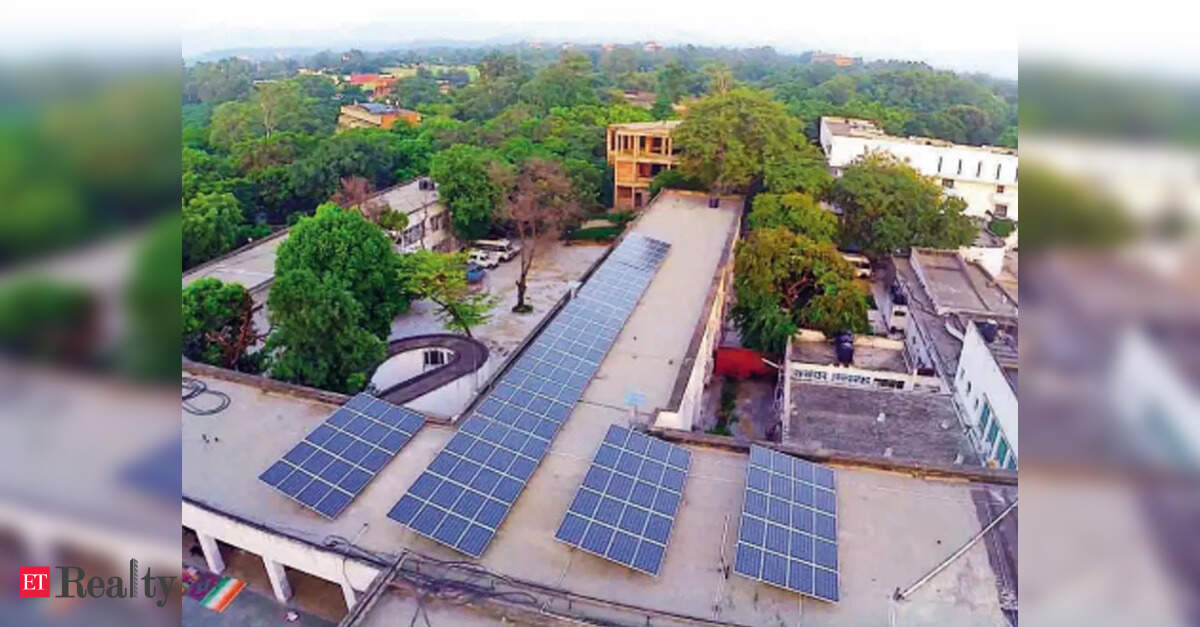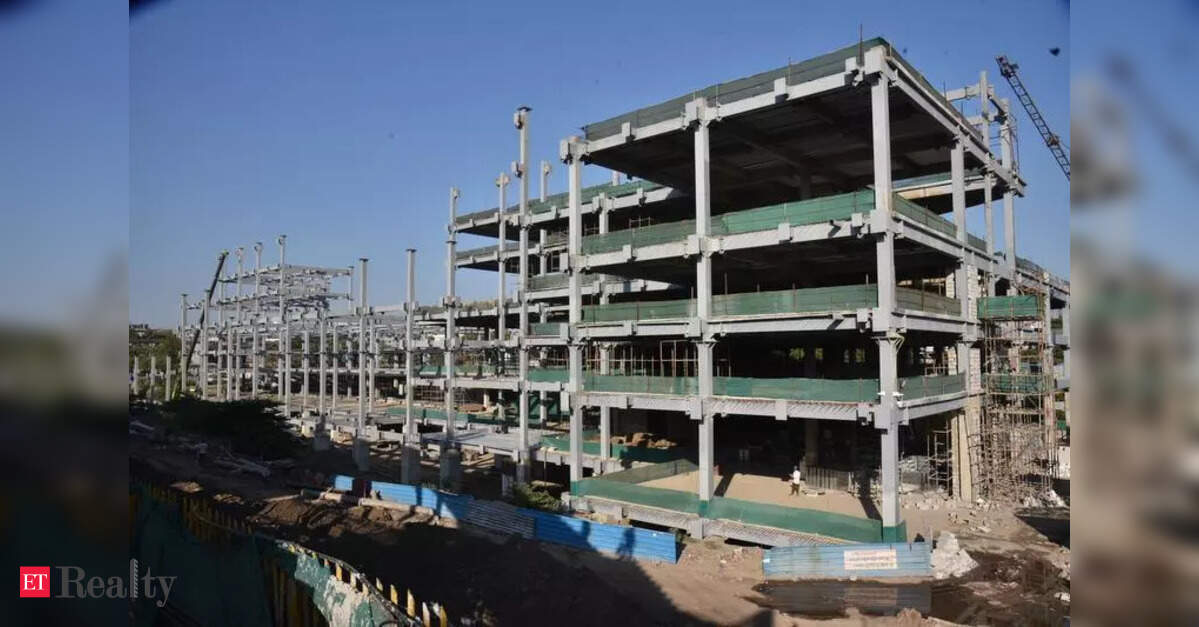
NEW DELHI: The Municipal Corporation of Delhi (MCD) plans to install rooftop solar power plants on 989 municipal buildings to cut down on conventional energy use and lower electricity expenses, officials announced on Wednesday.
The initiative will be executed in partnership with NTPC Vidyut Vyapar Nigam Limited (NVVN), a wholly-owned subsidiary of NTPC.
Under the RESCO model, the implementing agency covers installation, operation, and maintenance expenses, later recouping costs through a fixed tariff outlined in a Power Purchase Agreement (PPA).
The MCD has identified a potential of 10 to 15 megawatt (MW) solar capacity across the proposed buildings, pending a detailed energy audit.
Currently, the MCD has 574 solar photovoltaic (PV) plants installed, totaling a capacity of 13.25 MWp, spread across the former South, North, and East Delhi municipal corporations.
Between 2022 and 2024, an agreement with NVVN allowed for the commissioning of 26 rooftop plants with a combined capacity of 1.08 MWp, operating at a levelised tariff of Rs 4.72 per kWh.
NVVN currently has 10-15 MW of spare capacity from rooftop solar projects on Delhi Police buildings, which the MCD plans to leverage to expedite solar implementation on its assets.
Officials report that the proposed tariffs for these new installations range from Rs 4.25 to Rs 4.92 per unit, making them more financially feasible compared to the rates from the Delhi government-owned IPGCL, whose proposal has been set aside.
This initiative will be discussed in the upcoming MCD House meeting scheduled for Thursday.
Officials emphasized that the MCD’s solar expansion will not only reduce electricity costs but also contribute to India’s larger clean energy objectives. The project is set to cover nearly a thousand buildings, including schools, offices, and community facilities regulated by the MCD.
In January 2024, the Ministry of New and Renewable Energy (MNRE) designated NTPC as the Renewable Energy Implementing Agency (REIA) for Delhi, aimed at accelerating rooftop solar projects across government buildings.
In line with India’s Nationally Determined Contributions (NDCs) under the UN Framework Convention on Climate Change (UNFCCC), the country aims to derive 50% of its installed electricity capacity from non-fossil fuel sources by 2030, alongside a 45% reduction in emissions intensity.




